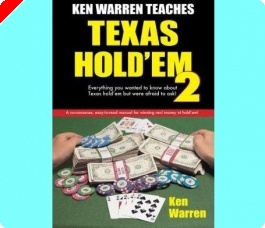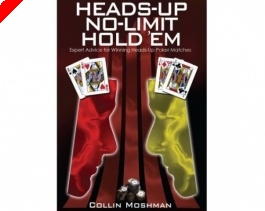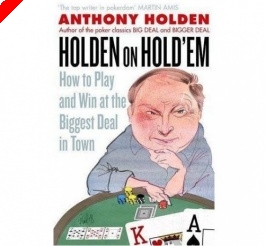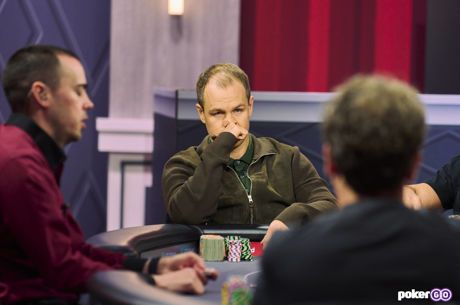Poker Book Review: Matthew Hilger's 'Internet Texas Hold'em' (Expanded Edition)
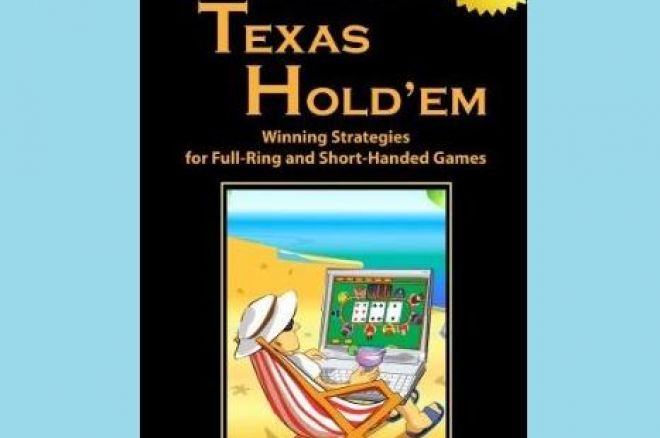
Among the first poker titles to arrive in the new year is a new edition of Internet Texas Hold'em by professional player and author Matthew Hilger. Originally published in 2003, this newly revised and expanded version of Hilger's already well-regarded <a href=https://www.021couriers.com/strategy/>poker strategy guide</a> provides a terrific introduction to fixed-limit hold'em for novice players, yet also speaks to the more experienced player with its clear and knowledgeable handling of advanced concepts.
Hilger has added over 100 pages of new material for this new edition, now subtitled "Winning Strategies for Full-Ring and Short-Handed Games." A new chapter on playing multi-way pots on the flop appears, as do two new chapters on short-handed play. Hilger has also revised the "Introduction to Internet Poker" section and made numerous other changes throughout the book in response to recent shifts in style occurring in online play. The result is to make what was already an especially useful text even more so given its mindful approach to the way limit hold'em is being played online �� from the smallest games up through the middle limits �� circa 2009.
Hilger makes clear early on that the bulk of his strategy advice concerns how to play against "typical opponents," but the author does well to remain consistently mindful of the many variations from the norm one can potentially encounter at the LHE tables. The new edition follows the same smart organization as before, starting with chapters covering core "Poker Concepts" (<a href=https://www.021couriers.com/poker-odds-calculator.htm>probability and odds</a>, bluffing, raising and check-raising, and other deceptive tactics). Then comes the discussion of "Starting Hands," divided as before into recommendations aimed at beginning and intermediate players (with an accompanying starting hand chart) followed by some "Advanced Concepts" suggesting various scenarios in which players might profitably add more hands to play.
What follows are sections successively examining many of the decisions one can encounter on the flop, the turn, and the river. Hilger does an especially good job in these chapters weighing alternatives and avoiding overly dogmatic, "by rote" advice that fails to account for the many potential variables that can arise at each of these decision points. As he does elsewhere in the <a href=https://www.021couriers.com/books/>book</a>, Hilger here punctuates chapters with handy "Chapter Reviews" that break down each chapter into easy-to-consult bulleted lists. Most chapters then culminate with "Test Your Skills" sections collecting hand examples that illustrate the concepts just covered, thereby affording the reader immediate opportunities to apply Hilger's advice. All told, the book includes more than 250 such hand examples (with over 50 new ones having been added here). All are drawn from actual games, ranging from $0.25/$0.50 online games on up to $30/$60.
The book then concludes with a short chapter on identifying different player types, the two new chapters on short-handed play, a chapter on bankroll management, the section on internet poker, and a postscript offering reading recommendations and a glossary.
Despite the book's title, the instruction provided largely applies both to live and <a href=https://www.021couriers.com/online-poker-rooms.htm>online games</a>, although one finds throughout Internet Texas Hold'em an ongoing emphasis on various online-specific issues. As was the case in the original book, such issues are frequently highlighted by "Internet Tips" in which various online phenomena are brought up when relevant to the topic at hand. Just to cite one example, amid a passage dealing with the question of whether (and how) to open up one's starting hand requirements in order to cultivate a looser image, Hilger includes a tip noting how table image is relatively less significant online since one's opponents' attention is often divided and/or players change tables much more frequently than in live play.
Some of these tips come up again in the revised "Introduction to Internet Poker" that comes near the book's conclusion, although that section also includes a great deal more useful information concerning key differences between live and online play. Here Hilger considers issues such as site selection, game selection, multi-tabling, and note-taking. One also finds in this section an illuminating discussion of online "tells" (primarily focusing on timing tells) as well as a look into the potential significance of stack sizes. (In fact, much of the advice included here could reasonably apply not just to limit hold'em, but to other online games as well.)
The biggest bonus with this new edition is the additional material covering short-handed play. Short-handed (or "6-max") games are becoming increasingly popular online, and these chapters offer practical guidelines for adjusting one's strategy to be successful at these games.
Of course, as Hilger himself points out at the start of the chapters on short-handed play, these games are "not for the faint of heart." Indeed, the highly aggressive style he recommends for short-handed games most certainly depends both on a thorough understanding of post-flop strategy as well as the right temperament for handling games more volatile than your typical full-ring LHE affair.
Whereas Hilger's starting hand recommendations and other advice for full-ring games add up to a fairly tight (though selectively aggressive) style, Hilger advocates a looser, more consistently aggressive style for short-handed play, always remaining mindful, of course, of one's opponents and the general tenor of the game. Given the wide availability of tables online, Hilger recommends exerting the effort to find those tight-passive short-handed games at which the loose-aggressive style works best, although he adequately covers dealing with loose and/or aggressive opponents, too. These chapters �� more than the rest of the book �� are intended for more experienced players; however, it must be said that even the novice will benefit from the clear, effective explanations of the differences between short-handed and full-ring play.
All of which is to say Internet Texas Hold'em remains a good choice both for the beginning player just getting started with limit hold'em as well as for the experienced player looking for smart, well-reasoned discussion of LHE strategy, with its many significant additions and revisions making it an even better resource than before.

